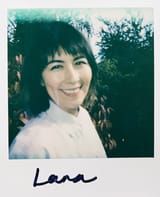discovering my role with my dad's cancer
more than support, less than takeover

I've long anticipated and fretted about how I would take care of my parents in their older age. Though to be honest, I always imagined it would be more of a slow mental decline than an almost-immediate physical one.
My dad was diagnosed with cancer three months ago. I had no idea what that meant. Cancer is so ubiquitous--40% of Americans are expected to get cancer in their lifetime, wtf--yet every experience is so different and personal that I couldn’t really place this diagnosis in context.
Even though I read the definition of my dad’s specific cancer, I underestimated what that actually meant or would entail.
I knew that if I approached my dad’s diagnosis as a “problem to be solved,” even just internally, that would be evident in my attitude and energy. My parents could easily interpret this energy as me being inconvenienced or burdened (yet another thing on my plate) and thus try to spare me by downplaying or withholding what was happening.
I visualized myself standing on a dock watching my parents on the deck of a large cruise ship that was starting to drift off into the ocean. Where that ship was headed was out of our control, and it wasn’t my sister’s or my job to steer the ship, but rather to jump on board and be there with them for the ride, with presence and care.
Embodying presence and care meant more check-ins. Less military dictator (“you must eat this!”), more coach (“how about another bite?”). More time for enjoyment (playing tennis with my mom). More open-ended questions, less directives.
In hindsight, while I think this internal orientation was important and valuable, I can see there was also a need for proactivity. I’m really conscious of my dad having full agency and ownership over his life and decisions, so I was careful not to take over or assume control. While I was trying to stay present with what was unfolding, we also got blindsided by things we probably could have anticipated.
I’m not the captain of the ship, but I’m not just along for the ride either. If I were to amend the original visual (and I think this applies to both me and my sister), we’d see ourselves up top with a telescope, surveying the stretch ahead, jotting down observations, and sketching a map. We’d know we’re all up in the cockpit, studying the controls, and maintaining communication with the cabin.
Perhaps this role is something like a “first mate” (let’s just beat this ship analogy to death!)--fully present and attuned to what’s happening, intervening as needed, and discerning when to step back or step forward.
I know we have much more to go, and perhaps my role will evolve even further. But this is how I’m seeing it for now.
